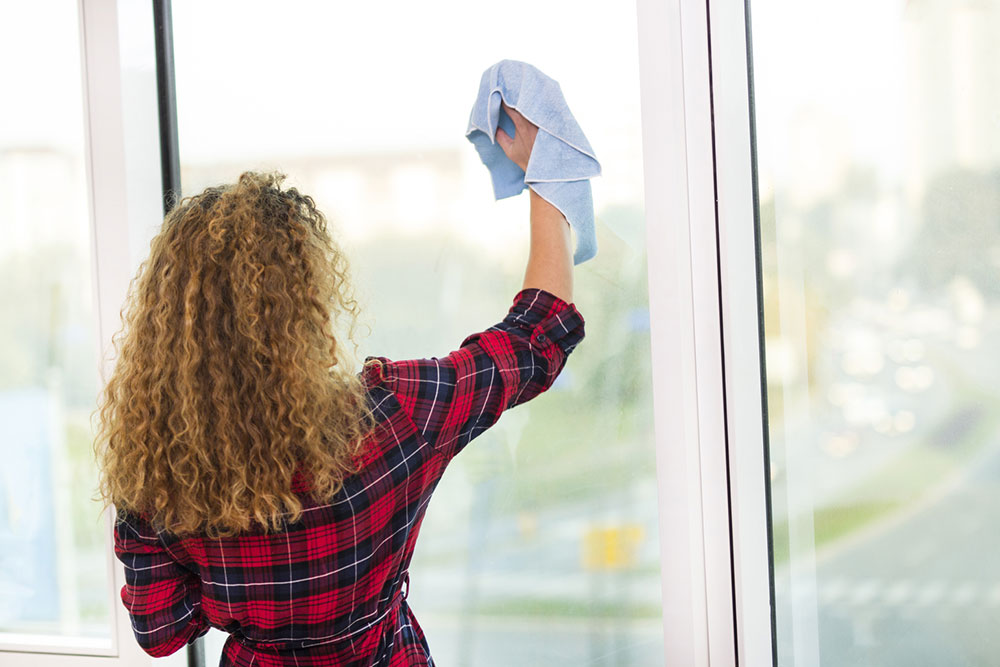7 mistakes to avoid while cleaning doors and windows

Doors and windows keep elements such as dust, wind, and rain from entering homes, and in the process, they can accumulate dirt and experience weather damage. As a result, they need to be cleaned carefully. Not only does regular cleanup ensure doors and windows remain streak-free and crystal-clear, but it can also help them function optimally. So, here are a few common mistakes to avoid making while cleaning doors and windows:
1. Skipping regular cleanup
Doors and windows need to be cleaned regularly to preserve their looks as well as function. Failing to do so may lead to dust and debris collection in the frames and tracks, leading to corrosion or poor operation. To ensure doors and windows are maintained, one can wipe down the inside every week and deep clean the exterior at least twice a year.
2. Not sealing gaps and cracks
When cleaning doors and windows, one must pay attention to gaps and cracks and seal them by caulking or weatherstripping promptly. If left unrepaired, the gaps can lead to air leaks, water leaks, or drafts, increasing the risk of mold and rot inside.
3. Ignoring lubrication
The moving parts of windows and doors need sufficient lubrication to continue functioning optimally. Ignoring this during cleaning can lead to quicker wear and tear, making them difficult to operate. So, one should use a silicone-based lubricant on hinges, locks, rollers, and any other moving parts of the doors and windows after cleanup as and when required.
4. Not dusting first
One of the biggest mistakes people make when cleaning their doors and windows is forgetting to dust them first. These surfaces tend to attract and retain a fair amount of dust. Using a water-based cleaner on them directly can cause the dust to stick, making it harder to clean. To avoid this from happening, one can use a soft, dry microfiber cloth or a vacuum cleaner to clean any surface-level dust.
5. Using a garden hose
When cleaning downstairs windows and patio doors, people often tend to rely on their garden hose for a quick rinse. This, however, is not likely to give window or door glass a clean, spotless finish, as the water tends to leave behind mineral content on the surface. Letting windows and doors air dry after hosing them tends to cause streaking as a result of mineral deposits.
6. Using abrasive materials
One should use gentle cleansers and a soft cloth for cleaning windows and doors. Abrasive supplies like steel wool or scouring pads could result in scratches on glass surfaces. Another important thing to remember is that surfaces that have been treated with water-repellent coating must not be cleaned with ammonia or vinegar-based cleaners, as they can break down the coating.
7. Choosing sunny or windy days
Sunny days may feel like a warm invitation to get some cleaning done. However, due to the heat, cleaning solutions may dry out quickly, leaving behind streaks and stains on the window or door surface. Whereas, on windy days, too much dust or debris flying around can make cleaning difficult. So, the best time to clean windows is a slightly overcast day.

